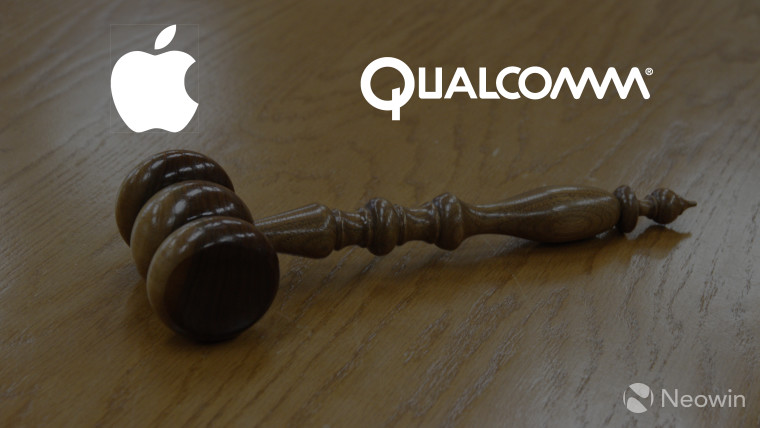
The growing legal feud between Apple and Qualcomm over royalty payments and patent holdings is getting worse. So much so that Apple is already starting to build the next versions of its iPhones and iPads without any of the usual components from the chip maker, according to a new report.
The new devices would sport modem chips from Intel and possibly MediaTek, sources have told the Wall Street Journal, because Qualcomm has reportedly withheld software from Apple that is critical to testing the new smartphones and tablets. Qualcomm reportedly withheld the software in response to Apple filing its $1 billion lawsuit in January in response to a Federal Trade Commission suit against Qualcomm over unfair business practices.
Qualcomm disputed the report, saying it fully supports Apple and that its “modem that could be used in the next generation iPhone has already been fully tested and released to Apple.” This would be the first time in more than a decade that Apple devices would not contain Qualcomm parts, although the iPhone 7 and iPhone 8 handsets used a Qualcomm/Intel mixture for the first time.
While Apple"s move is likely to be purely retaliatory to get around what it feels are unfair royalty charges, going to different modem chip makers like Intel and Taiwan-based MediaTek could lead to distinctly inferior performance in download speeds, analysts said. Qualcomm chips traditionally hit one gigabit per second, while the other two are still trying to reach that level.
Another area where Intel lags behind is in older generation cellular standards. While Qualcomm chips have regularly supported both, Intel had only supported one. However, Intel has revealed its work on a new modem chip that would also support both standards and would work with a greater variety of wireless carriers. There is no word on when that chip will be made available.
Qualcomm has also achieved 5G speeds with its new chips, a milestone that would support the new faster cellular networks being created by Verizon and other carriers. Intel supposedly is close to that breakthrough as well.
After Apple filed its suit, it asked it contractors to stop paying royalties to Qualcomm. The chip maker fired back, suing the contract manufacturers in March for withholding royalties, and in April for misleading customers about chip performance. The contractors then accused Qualcomm of breaking antitrust laws. In a further move to stymie Apple, Qualcomm also filed suits to have iPhone sales in the United States and China halted. Other major tech companies sided with Apple, but Qualcomm lashed out, accusing them of a "coordinated effort aimed at misdirecting" regulatory authorities."
No matter the side, the feud has affected Qualcomm"s bottom line. It reported a 40% slump in profits for Q3.
Source: The Wall Street Journal